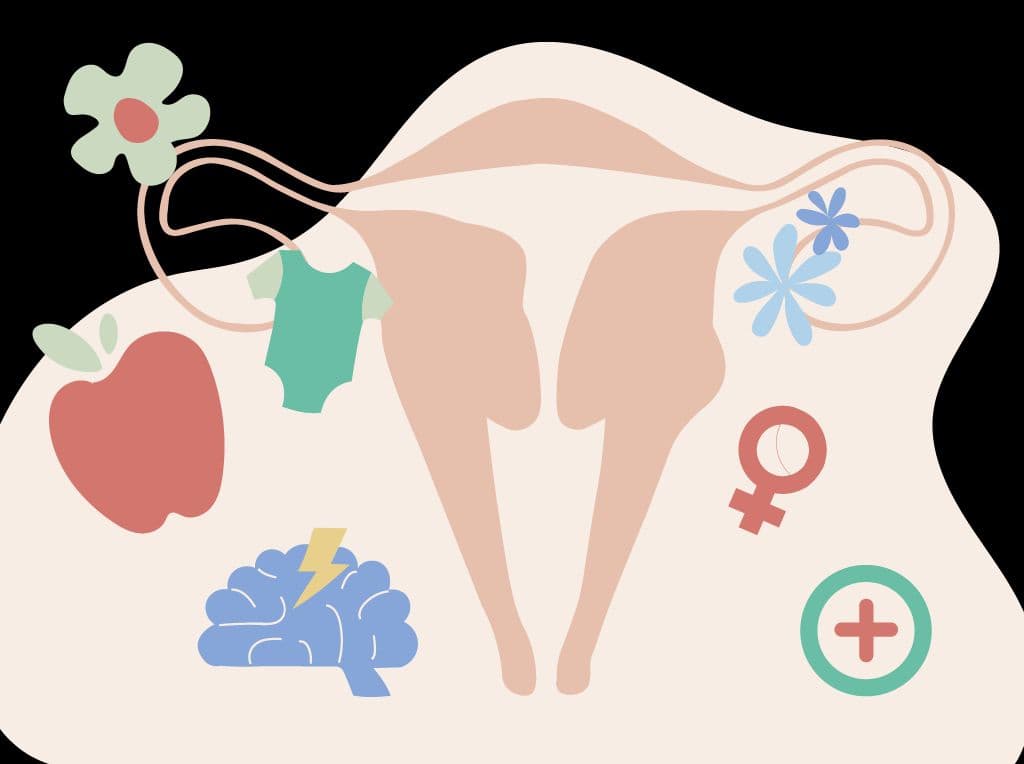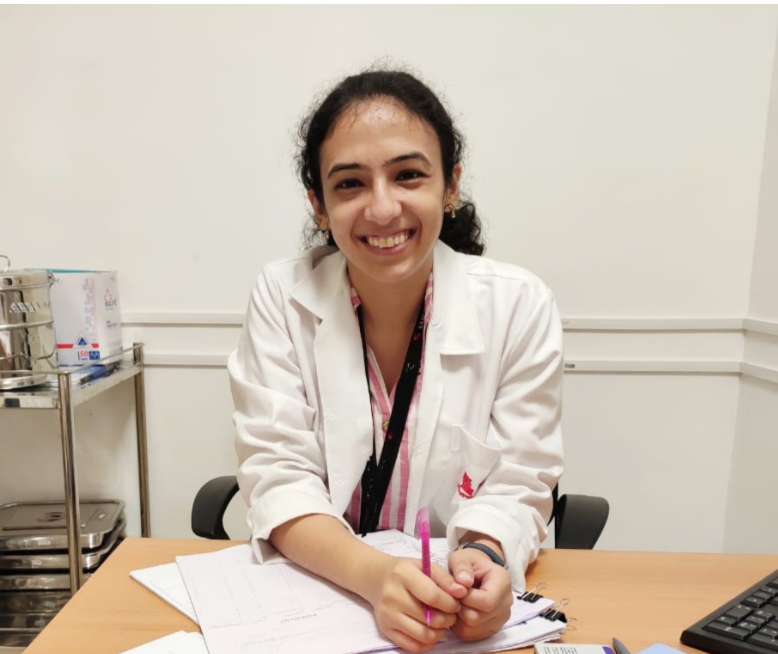This article has been compiled by Vaibhavi Kodnani, a content writer at Proactive For Her.
What precautions should a woman take after going through the IVF procedure?
Prenatal care is an important step towards having a successful pregnancy. At all times, follow your doctor’s advice to prevent yourself and your baby from complications.
- Take the prescribed medicines - After the IVF procedure, the doctor will prescribe certain medications and supplements such as progesterone supplements to support the pregnancy. Keep daily reminders to take these medicines on time.
- Start on folic acid supplements - Folic acid is crucial for prenatal health. Take folic acid supplements as prescribed by your doctor daily. Folic acid helps in preventing defects in the baby’s brain and spinal cord.
- Be watchful for symptoms of OHSS - Ovarian Hyperstimulation Syndrome (OHSS) can occur after ovarian stimulation. Hence, observe for signs such as abdominal pain, bloating, nausea and vomiting. If you experience any of these symptoms, inform your doctor immediately.
- Manage your stress - The IVF procedure can be stressful and overwhelming due to various reasons. It involves several steps, high expenses, and success rates in the first attempt are low. However, taking stress when trying to get pregnant can be detrimental for you. Therefore, throughout the IVF process and after its completion, stay positive and happy. We know it is easier said than done, but stress management will be beneficial for you and your baby. Engage in your favourite activities and hobbies. Relaxation techniques such as yoga and meditation can help you maintain your composure.
- Avoid sexual intercourse - Having sexual intercourse after the implantation of the embryo in the uterus increases the risk of a miscarriage. To prevent this from happening, refrain from having sex.
- Refrain from vigorous exercising - Similarly, doing vigorous exercises can result in a miscarriage. Do not perform jogging, jumping, running, biking, swimming, climbing stairs or any such activity. Anything new should be done only after consulting the doctor. They will advise you on the best exercises that can be done based on your condition.
- Avoid heat exposure - Excessive exposure to heat can raise the temperature of your uterus and increase the risk of a miscarriage. Therefore refrain from taking hot baths, saunas and using heating pads.
Can a woman do her daily activities during and after the IVF procedure?
You can carry out your daily activities after the entire IVF procedure is complete, but take the necessary precautions. You do not need to take complete bed rest unless your doctor advises you to do so. After the egg retrieval process, you may need a few days for recovery.
What should men do after their partner has undergone IVF?
Although men do not have to follow any specific rules, they need to provide emotional support to their partner. IVF involves various steps that can cause a lot of physical and emotional stress for the woman. She has to take many medications, undergo different procedures, take precautions post IVF and repeat the cycle a few times to achieve a successful pregnancy. All of this may lead her to experience frequent mood fluctuations, fatigue and emotional stress. Therefore, the love, support and care from her partner will help her deal with it better. Men can take up a few responsibilities to take some load off their partners. They can also ensure that she takes her medications on time. Make sure to alert her doctor if she experiences any OHSS symptoms.
What are the complications associated with IVF?
Women having an IVF pregnancy are at the risk of a few complications such as multiple births, OHSS, bleeding and infections during ovum pick-up and ectopic pregnancy.
Multiple births
Generally, during the IVF procedure, more than one embryo is transferred into the uterus to improve the chances of implantation and growth of at least one embryo. Although it does improve your chances of a successful pregnancy, it also increases the risk of multiple births. Hence, you may end up with a triplet or twin pregnancy.
Compared to singleton birth, having multiple births puts you at a higher risk of:
- Early labour
- Low birth weight of the baby
Ovarian Hyperstimulation Syndrome (OHSS)
During the ovarian stimulation stage, the doctor administers injectable fertility drugs to induce ovulation. The purpose is to produce multiple eggs instead of the usual one egg per month. However, it can lead to adverse effects such as Ovarian Hyperstimulation Syndrome (OHSS), wherein the ovaries become swollen and painful.
After you go through the ovarian stimulation process, watch out for the following OHSS symptoms, which usually last for a week:
- Mild abdominal pain
- Bloating
- Nausea
- Vomiting
- Diarrhoea
Developing a more severe form of OHSS is rare. But if it happens, apart from the general symptoms, it can also lead to:
- Rapid weight gain
- Shortness of breath
Complications during egg-retrieval procedure
There are some complications associated with the egg-retrieval procedure of IVF. The use of needles could result in:
- Bleeding
- Infection or damage to the bowel
- Infection or damage to the bladder
- Damage of a blood vessel
If sedation and general anaesthesia are used for the procedure, there are some risks connected to that too.
Ectopic pregnancy
Around 2-5% of women who use the IVF technique become susceptible to an ectopic pregnancy. It is a condition in which the fertilised egg implants outside the uterus, usually in a fallopian tube. It can lead to life-threatening bleeding.
Are miscarriages common after IVF?
It is not guaranteed that an IVF pregnancy will result in a miscarriage. But taking the necessary precautions is the first step to ensure it does not result in a miscarriage. The rate of miscarriage with an IVF pregnancy is 15-25%, similar to that of women who conceive naturally. However, this rate is bound to increase as the maternal age advances.
What happens if IVF fails the first time?
Usually, the first IVF cycle is never successful. If you do not become pregnant the first time, the doctor will analyse the possible reasons for the same. They may bring in some changes in certain components of the IVF cycle. For example, the drugs used for ovarian stimulation may be altered and likewise. Then, the IVF cycle will be repeated.
After a couple of unsuccessful attempts, the doctor may suggest opting for donor sperm and/ or donor eggs or donor embryos.
How long does one need to wait before starting another IVF cycle?
After an unsuccessful attempt at an IVF cycle, you can start the next round after one whole menstrual cycle. It is the recommended and standard spacing between two IVF cycles.
Does an IVF pregnancy result in a normal delivery or C-section?
Whether you will have a normal delivery or a C-section entirely depends on the condition of your pregnancy.
Are IVF babies healthy?
Yes, IVF babies are born physically and mentally healthy. However, they may be born prematurely due to factors like multifetal pregnancy, diabetes, obesity, etc.
What are the warning signs after IVF to visit a doctor?
In case any of the below-mentioned symptoms occur, contact your doctor immediately without further delay to prevent complications. Severe abdominal cramping accompanied by heavy bleeding or nausea could indicate Ovarian Hyperstimulation Syndrome (OHSS) or ovarian torsion. Also, do not perform a pregnancy test for at least ten days after the booster injection, as it can interfere with the test results.
Bottom line
A woman has to take various precautions and care to increase the chances of a pregnancy post the IVF procedure. Even if the first IVF cycle fails, do not lose hope and try for it again. Always remember to stay positive and do not blame yourself if a pregnancy does not happen. There are many options to have a baby; your doctor will surely guide you about the best options available.
Disclaimer : This information is provided for educational purposes and should not be construed as medical advice. Please consult with your healthcare practitioners before undertaking any changes in your diet or adding supplements.
ProactiveForHer is a digital clinic for women, offering accessible, personalized, and confidential health-care solutions. We offer products and services for out-patient health concerns of Indian women, across their lifetime - from puberty to pregnancy to menopause. To know more on the sexual and reproductive health of women, visit https://www.proactiveforher.com/

